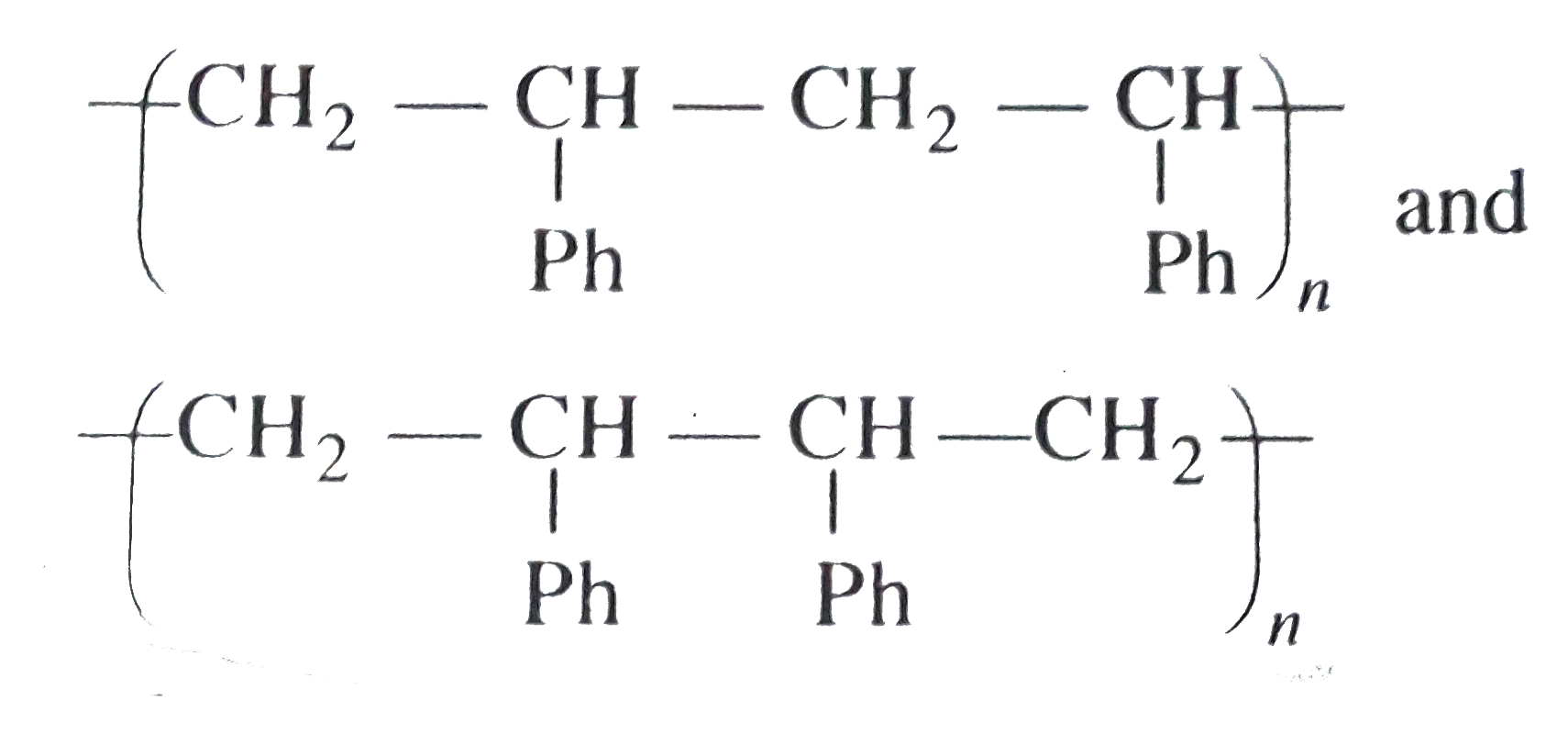Complete Solutions to Solved Example of chapter SYNTHETIC AND NATURAL POLYMERS of Class 12 book with complete answers and questions
| Class 12 | CHEMISTRY |
| Chapter | SYNTHETIC AND NATURAL POLYMERS |
| CENGAGE CHEMISTRY | Solved Example |
| Number Of Questions | 6 |
| Academic Year | 2023-24 |
(a)Give the decreasing order of reactivites of the following monmers towards catitopm addition polymerisation.
(I)`MeCH=CH_(2)`
(II)`PhCH=CH_(2)`
(III)`CH_(2)=CH-COOMe`
(IV)`CH_(2)=CH=Cl`
(b)Give the decreasing order of reactivities of the following monomers towards anionic addition polymerisation.
(I)`Me=CH=CH_(2)`
(II)`PhCH=CH_(2)`
(III)CH_(2)=CH=CN`
(IV)H_(2)C=CCl_(2)`
(v)H_(2)C=CF_(2)`
(VI)F_(2)C=CF_(2)`View SolutionExplain why propone polymerises in isotactic,syndiotactic and atactic forms ,while vinylidence chloride`(CH_(2)=CCl_(2))`does not.
(b) Which form of polypropene (isotatic,syndiotactic,and atactic)Would be optically active?02:50View Solution(a) Explain the free radical polymerisation of styrene.
(b) The following two possible products can be formed in this reaction:(I)
Which product is formed and why?03:48View SolutionExplain why polymerisation of accrylonitrile is preferred under ationic polymerisation ,wheereas polymersation of vinylic monomers containing polymersation of vinylic monomers contining`EDG` is preferred under cation mechanism.
`(b) Explain the polumerisation of buta-1,3-diene using different routes.View Solution(a)Why is the purest monomer used in free radical polymerisation?
(b).How does the presence of`CCl_(4)`or`CBr_(4)`influence the course of vinylic free radical polymersation.
(c )what is the monomer of the polymer given below:

`(d)Why does hole develope in nylon stocking when a drop of`HCl`is added to it?View SolutionA copolymer of ethene and vinyl chloride contains alternate monomers fo each type.What is the ,mass percentage of vinyl chloride in this copolymer?
03:52View Solution
Solved Example questions and complete solutions for chapter SYNTHETIC AND NATURAL POLYMERS of CENGAGE CHEMISTRY (HINGLISH) of Class 12
